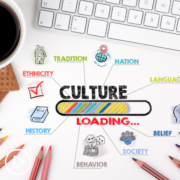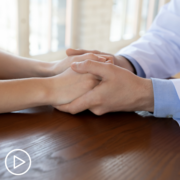Advice From a Cancer Survivor for Better Whole Person Care
Advice from a Cancer Survivor for Better Whole Person Care from Patient Empowerment Network on Vimeo.
How can better whole person care be achieved by patients and healthcare providers? Dr. Nicole Rochester and Sasha Tanori discuss ways that care can be improved to work toward optimal patient care.
See More From Rx for Community Wellness
Related Resources:

|

|

|
Transcript:
Dr. Nicole Rochester:
If you had some advice that you could give from a patient’s perspective, and maybe you’re talking to a policy maker or healthcare providers, but how can we do better in this area as it relates to whole person care, culturally competent care?
Sasha Tanori:
I would definitely say take your patients more seriously and not just like one-offs, okay, bye. A lot of the time, they just do a couple of tests and they’re like, “Oh well, we can’t find anything, so let’s just move along,” and there needs to be more conversation as well.
A lot of the doctors will come in and talk to you for like you said, 15 minutes, and then it’s like, “Okay, you know, well, we can’t find anything wrong, so just go.” And it’s like, “No, let me explain everything, let me explain how I’m mentally feeling, how I’m physically feeling, how stressed out feeling, how emotionally I’m feeling.” And there are just so many different layers to just one, if you come in and say, “Oh, well, my hip hurts.” Okay, but why I explain more to it, not just okay let’s do an x-ray and you leave. Like there needs to be a lot more conversation going on between the patient and the doctor, there needs to be a lot more understanding where it could also be stress as it relates to work, it could be stress related to family, to love the ones…to kids, to spouses, there are so many different things on top of that, that’s more than just, you know, “Hey, you know like, I just need a prescription,” and you can go. There’s so much more conversation needs to be have then I really wish that a lot more healthcare providers would have that conversation with them, I know they don’t always have the time, they’re busy, but at least a little bit more compassion, a little bit more understanding, going about when it comes to patients.
Dr. Nicole Rochester:
I appreciate that, and you’re right. The time is an issue. And I will tell you as a physician and as somebody who has tons of physician friends, it causes internal conflict within the doctors, because I don’t know any doctor that got into this for any reason, primarily, other than to help patients, and so to be placed in these situations where you know that you’re falling short of providing the care that your patients need is actually quite disturbing.





